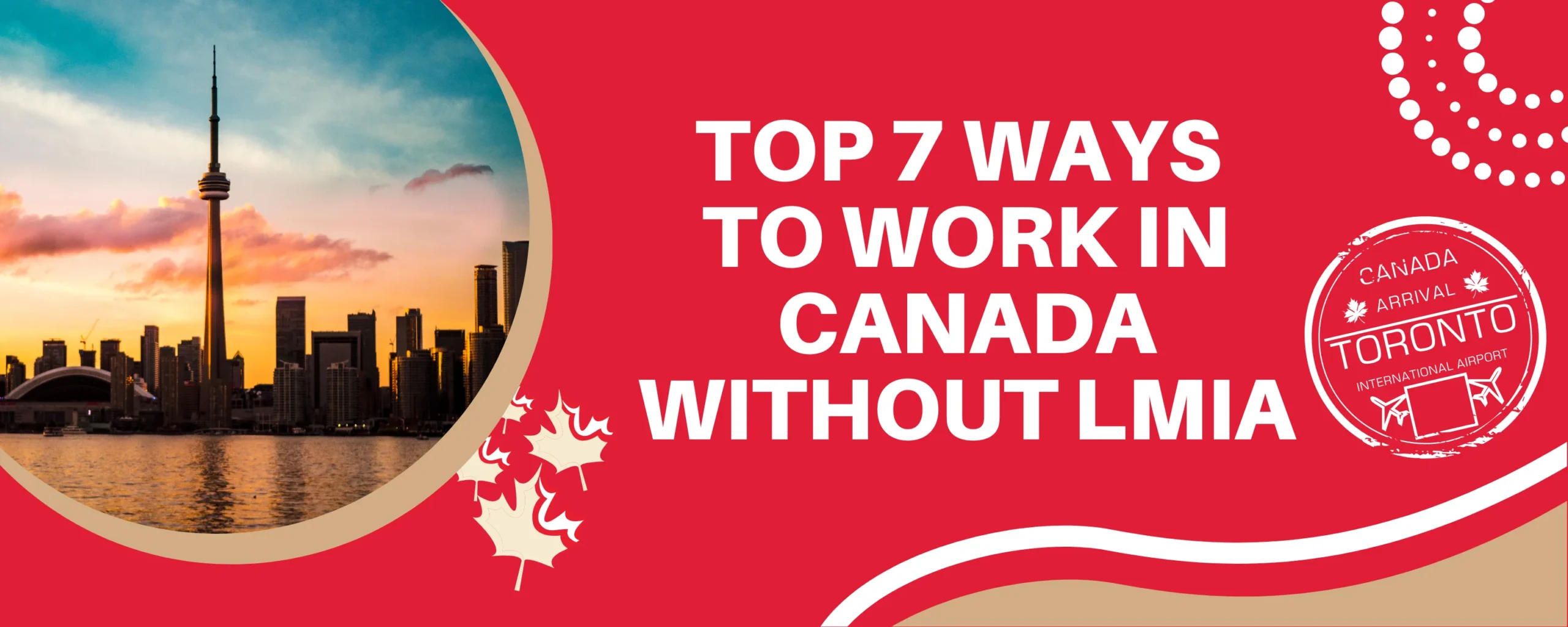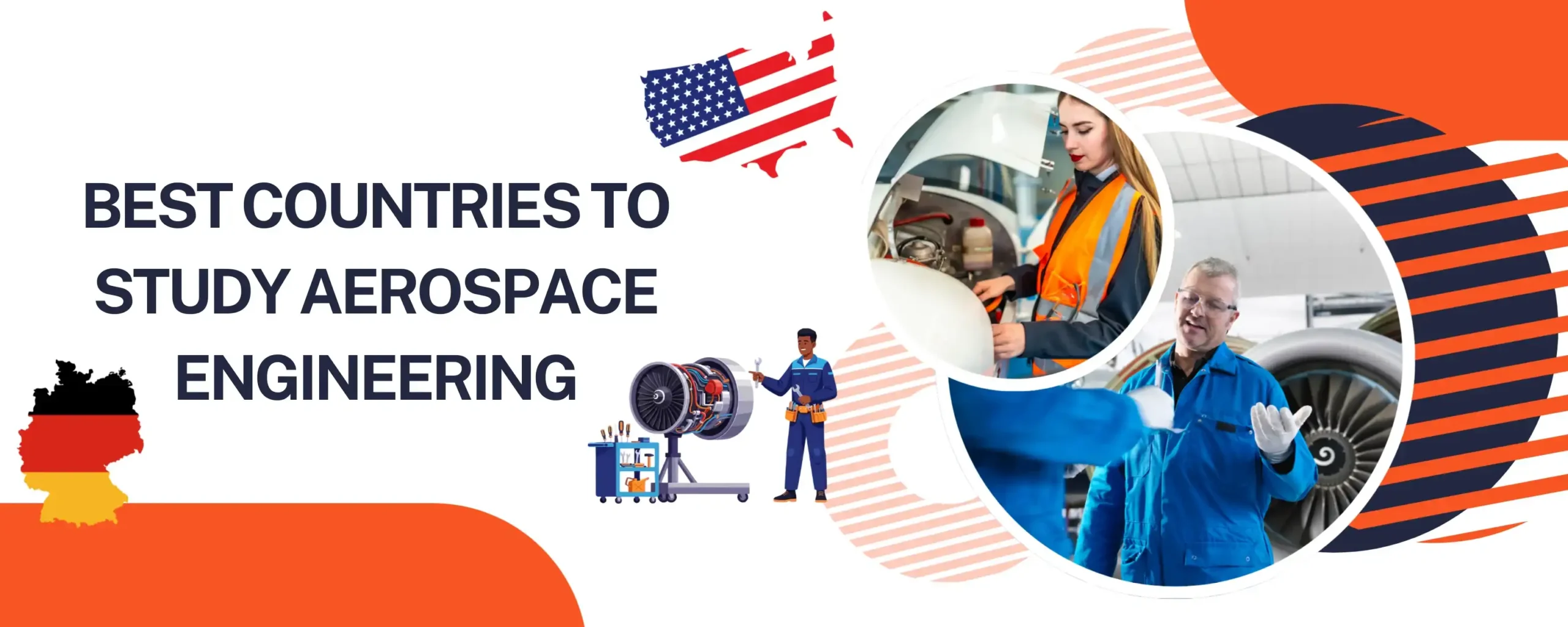Obtaining a Canadian PR is a dream for many. And if you are dreaming of working in Canada you might be aware of the Labour Market Impact Assessment (LMIA). It is a document issued by the Employment and Social Development Canada (ESDC) that assesses the impact of hiring a foreign worker on the Canadian labor market. In simpler terms, it verifies that there are no Canadian citizens or permanent residents available to fill the position you’re applying for, and thus, a foreign worker is needed.
That seems difficult right? but what if we told you that there’s a way to obtain a Canada work permit without LMIA? Yes, you read it right! In this blog, you will get to know about the programs that offer you to work in Canada without LMIA.
Provincial Nominee Programs (PNPs)
Provincial Nominee Programs (PNPs) offer a golden opportunity of working in Canada without LMIA. Several Canadian provinces, including Ontario, British Columbia, and Alberta, has its own PNP, and they often target individuals with specific skills or work experience relevant to that region. These programs are designed to fill labour shortages in high-demand occupations while making the immigration process easier for qualified professionals.
How Does it Work?
A. Research and Choose a Province: Each province has its own PNP streams, targeting specific professions like healthcare, IT, and skilled trades. So start by researching and selecting a province or territory that aligns with your skills and qualifications. Each PNP has different eligibility criteria, so make sure you meet the requirements.
B. Apply for Nomination: Apply to the chosen province’s PNP for nomination. If nominated, you’ll receive an Invitation to Apply (ITA) for permanent residency. No LMIA is needed at this stage.
C. Permanent Residency: Once you’ve received your ITA, you can apply for permanent residency to Immigration, Refugees, and Citizenship Canada (IRCC).
Why Choose PNPs?
- LMIA exemption for certain occupations.
- Faster PR pathway.
- Opportunities in high-demand fields.
NAFTA and CUSMA
Did you know that if you’re a U.S. or Mexican citizen, you can work in Canada without an LMIA? Thanks to the Canada-United States-Mexico Agreement (CUSMA), formerly known as North American Free Trade Agreement (NAFTA), professionals from these countries can secure work permits quickly and easily under the CUSMA Professional Work Permit category. There are four categories of temporary work covered under CUSMA:
- CUSMA Professionals: Applicants who qualify to work in one of approximately 60 targeted professions.
- CUSMA Intra-Company transfers: Workers transferring to Canada to work for a branch of their US or Mexican company who meet the ICT requirements.
- CUSMA Traders: Canadian workers to carry out trade of goods or services between Canada and either the US or Mexico.
- CUSMA Investors: Investors who have made an investment in a new or existing Canadian business and are coming to Canada to develop and direct the business.
If you’re not from the U.S. or Mexico, don’t worry! Canada offers other LMIA-free pathways too. Keep reading to explore your best route to working in Canada!
Intra-Company Transfers
This is a Corporate Pathway. If you work for a multinational corporation and dream of transferring to a Canadian branch, the Intra-Company Transferee program may be your solution. This program allows employees to transfer across Canada’s borders and does not require an LMIA.
Who Qualifies?
To be eligible, you must:
- Work for a multinational company with an office in Canada.
- Hold a managerial, executive, or specialized knowledge position.
- Have at least one year of full-time experience with your employer in the last three years.
For skilled professionals in tech, finance, healthcare, and management, this is a golden opportunity to work in Canada seamlessly while advancing your career!
Post-Graduation Work Permits (PGWPs)
If you want to work in Canada while studying, the Study-Work-Immigrate pathway is an attractive option. International students can work part-time during their studies and full-time during designated breaks. After completing your studies, you can apply for a Post-Graduation Work Permit (PGWP), which allows graduates from Designated Learning Institutions (DLIs) to work in Canada without LMIA for up to three years. Canadian work experience under PGWP boosts eligibility for Express Entry or Provincial Nominee Programs (PNPs).
Start or Buy a Business in Canada
If you’re an entrepreneur at heart, consider starting or buying a business in Canada. The government encourages business immigration through programs like the Start-Up Visa Program and the Self-Employed Persons Program without needing LMIA.
Canada allows foreign entrepreneurs to apply for a work permit as an owner-operator, meaning you can either start a new business or acquire an existing one and actively manage it. This LMIA-exempt option is ideal for entrepreneurs looking to establish themselves in Canada while gaining work authorization.
Steps to start or purchase a business in Canada:
- Choose a business – Start a new venture or buy an existing business.
- Create a business plan – Outline growth strategies and job creation.
- Make a significant investment – Demonstrate financial commitment.
- Apply for a work permit – As an owner-operator, no LMIA is required.
Many successful entrepreneurs have used this pathway to build thriving businesses in Canada—your success story could be next!
Open Work Permits for Spouses
If your spouse is working or studying in Canada, you can work too—without needing an LMIA? Canada offers Open Work Permits (OWPs) for spouses, allowing them to take up employment without job restrictions.
Who Can Apply?
- Spouses of international students with a valid study permit.
- Spouses of skilled workers holding a valid Canadian work permit.
- Spouses of PR applicants under certain immigration programs.
This pathway not only allows families to stay together but also helps spouses build their careers in Canada!
Francophone Mobility Program
Do you speak French fluently? The Francophone Mobility Program is your fast-track opportunity! Designed to attract French-speaking foreign workers outside Quebec, this program bypasses the LMIA process, making it easier for employers to hire Francophone talent. Canada promotes bilingualism and aims to increase the number of French speaking individuals in Canadian society across provinces like Ontario, Manitoba, and Alberta.
Who Can Apply?
- You must be fluent in French (proven by language tests).
- You must have a valid job offer from a Canadian employer outside Quebec.
French speakers, this is your chance to work and thrive in Canada!
Conclusion
Your Canadian Dream is Closer Than You Think! Working in Canada without an LMIA is possible through multiple pathways, whether you’re a skilled professional, an entrepreneur, or a student. Your choice should align with your qualifications, experience, and aspirations. Whether it’s PNPs, intra-company transfers, entrepreneurship, or open work permits, there’s a pathway that suits your goals. Now is the time to explore your eligibility and take expert guidance on study and work opportunities in Canada.
Frequently Asked Questions
1. How to Get a Job in Canada Without LMIA?
Ans: Securing a job in Canada without an LMIA (Labour Market Impact Assessment) is possible through several LMIA-exempt work permit programs. These include:
- Provincial Nominee Programs (PNPs): Some PNP streams allow workers to get a job and apply for permanent residency without LMIA.
- Intra-Company Transfers: If you work for a multinational company, you may be eligible to transfer to a Canadian branch.
- Post-Graduation Work Permit (PGWP): International students can work in Canada without an LMIA after completing their studies.
- Open Work Permits for Spouses: Spouses of skilled workers or students can work freely in Canada.
- Francophone Mobility Program: French-speaking professionals can apply for jobs in certain provinces outside Quebec without LMIA.
Exploring these LMIA-free pathways can help you secure a job in Canada without the hassle of employer approvals.
2. What Is the Alternative to LMIA?
Ans: If you want to work in Canada but wish to avoid the LMIA process, there are several alternatives:
- Employer-Specific LMIA-Exempt Work Permits: Certain categories, like intra-company transferees and research positions, do not require an LMIA.
- Open Work Permits: These permits, such as the Post-Graduation Work Permit (PGWP) and Spousal Open Work Permit, allow individuals to work for any employer without an LMIA.
- Business and Entrepreneur Pathways: Buying or starting a business in Canada can grant work authorization without an LMIA.
- International Agreements (CUSMA, GATS, etc.): Trade agreements like CUSMA (formerly NAFTA) allow citizens of the U.S. and Mexico to work in Canada under specific job categories without an LMIA.
Choosing the right LMIA-free option depends on your qualifications, work experience, and long-term goals in Canada.





